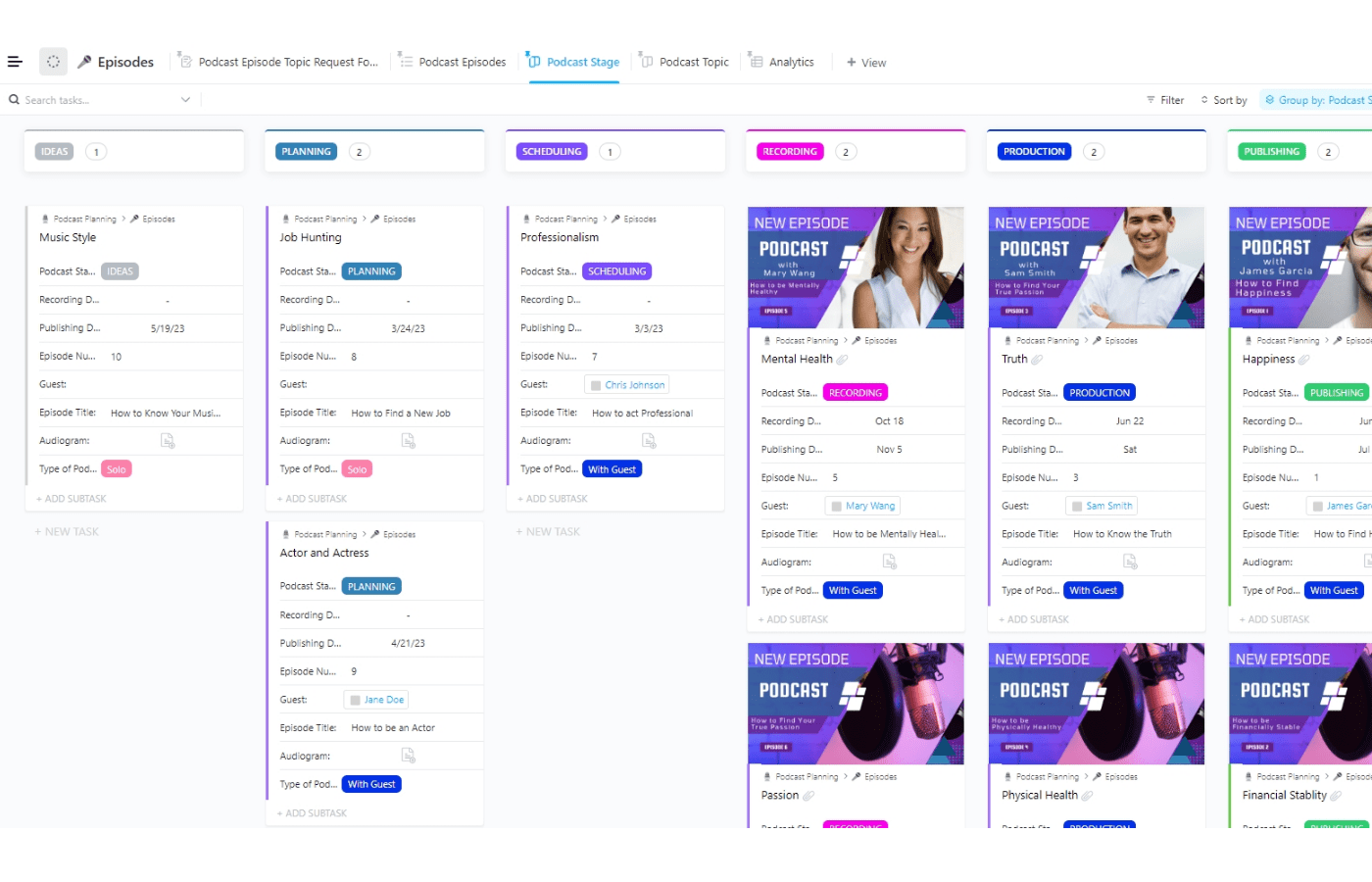From entry-level roles to salaried positions offering full benefits, careers in project management offer plenty of opportunities for novices and established professionals alike – as long as they have the skills needed to succeed. Here are some of the most important soft skills needed to succeed in project management no matter your current level of professional experience.
Numerous skills are needed to succeed in the field of project management. Some, like teamwork, interpersonal communications, and critical thinking, are soft skills that are applicable at every step of your PM journey. Others, including hard skills like project forecasting, budgeting, and subject matter expertise, only come into play once you reach certain points in your project management career path.
Read More: 5 Interpersonal Skills Every Project Manager Needs
For those who are interested in pursuing project management as a lifelong career, it’s a good idea to check off as many of these soft and hard skills as possible. Not only do these skills ensure a smooth trajectory right from the start, but they’ll help you prepare for your future roles, too.
Soft Skills for Project Management
Generally speaking, soft skills are the traits and abilities that define you both as a person and an employee. Qualities like workplace etiquette, punctuality, and active listening are all examples of soft skills. Since the field of project management tends to focus so heavily on teamwork, collaboration, and communication, it’s no surprise that many of the soft skills needed revolve around similar themes.
Entry-Level
- Teamwork: In nearly all cases, project management is a very team-oriented occupation. Not only will you work hand-in-hand with direct teammates with varying levels of training and experience, but you’ll also be expected to follow directions and cooperate with supervisory staff, too.
- Interpersonal communications: Communication is critical at all levels of the PM field. You’ll need to develop strong verbal communication skills in order to interact with your direct teammates, and, in most cases, you’ll want to have a strong grasp on written communication for writing reports and sending emails.
- Active listening: You can learn a lot simply by listening to those who have more experience and seniority than you. Use your active listening skills, read between the lines, and use contextual clues to fill in any communication gaps and deliver exactly what’s asked of you.
- Critical thinking: Entry-level employees with the ability to think critically will likely go far in the PM field. Many projects require you to make snap judgment calls, react to changes in real-time, and think outside the box.
- Technical skills: Technical computer skills are also highly desirable in the PM field – even in entry-level roles. You don’t have to be an expert programmer with an advanced degree as a computer engineer, but it’s useful to know your way around desktop machines, laptop computers, and modern software.
Mid-Level
- Team management: Effective team management is the key to success in many mid-level PM roles. Managing a project team successfully actually requires numerous other soft skills, such as communication, delegation and prioritization, problem-solving, and more.
- Adaptability: Successfully making the transition from an entry-level opportunity into a mid-level PM role shows a certain amount of adaptability in and of itself. To excel at this level, however, you’ll need to be able to adapt to new projects, quality standards, and timelines on a regular basis.
- Professional versatility: Most mid-level PM roles involve continuous multitasking. Demonstrating your professional versatility at this level, by efficiently switching tasks, tracking multiple deadlines, and picking up the extra slack where needed, tends to go a long way with your managers and supervisors.
- Resourcefulness: Mid-level PMs also need to be resourceful. Whether you’re compiling performance stats for the next report, trying to find temporary employees to fill your roster, or securing new clients and projects, it’s often a PM’s resourcefulness that sets them apart from their peers.
- Time management: Effectively managing your own time is critical in an entry-level PM role, but mid-level PMs need to manage the time of others, too. Being able to synchronize task due dates, project schedules, and timelines makes it easier to track productivity and provide deliverables on a timely basis.
Senior-Level
- Organizational leadership: Nearly all senior-level PM roles involve direct leadership of some sort, but the topmost executives need a strong grasp of organizational leadership in order to drive the company forward, maintain team productivity, and ensure long-term success.
- Influence: Senior-level project managers are often highly influential people. Not only can they use this influence to lead subordinate staff members, but they’ll also use their influence when negotiating with clients and communicating with key project stakeholders.
- Conflict management: No matter how well your team works together on a day-to-day basis, some conflicts are bound to arise. Some conflicts can be handled by entry- and mid-level employees, but any major conflicts are reserved for the senior-level staff.
- Decision-making: The senior-level staff are often the key decision-makers in any field – and project management is no different. Being able to make decisions, having the willpower to stand behind your decision, and taking accountability for the consequences (good or bad) are all essential components of any senior-level project manager.
- Negotiations: Most successful PMs are great negotiators. Between negotiating terms with clients and haggling over employee contracts and salaries, you need to be able to state your intentions clearly, concisely, and convincingly.
Hard Skills for Project Management
Unlike soft skills, which are generally learned throughout the course of life, hard skills are abilities and proficiencies that are trainable, teachable, and measurable. In the field of project management, this generally equates to skills like project reporting, data analytics, and project forecasting. In most cases, your success in the PM field hinges on these skills – especially when it comes to senior-level roles.
Entry-Level
- Technical writing: Although it can mean a variety of different things depending on the industry, technical writing essentially breaks down complicated topics or complex instructions into easily digestible and manageable articles, guides, or manuals.
- Project reporting: Regardless of the project, reports are almost always needed. They can introduce new projects, track the progress of ongoing projects, and even summarize a completed project. Some reports might even include basic graphics, such as charts, tables, and graphs.
- PM software knowledge: While a general knowledge of computer software is necessary to succeed in most PM roles, those who can develop an innate understanding of PM-specific software will almost always stand out amongst their workplace peers.
Mid-Level
- Project planning and organization: Project planning is one of the most important hard skills in the PM field. It goes hand-in-hand with other skills such as the ability to organize project resources, establish project timelines, and measure success.
- Data analytics: Although analytics doesn’t necessarily play a role in every project, data is becoming more of a priority as we continue to progress through the Information Age – and the trend isn’t slowing down any time soon. Learning the basics of data analytics as a mid-level PM is a great way to set yourself up for a future promotion.
- Subject matter expertise: While there are many generalist project managers who have made significant strides in the industry, the most successful PMs often have specific expertise in a subject that is directly related to their day-to-day responsibilities. Subject matter experts (SMEs) often work hand-in-hand with PMs, but it’s still helpful to have a solid understanding of the matter at hand.
Senior-Level
- Business writing: You should already have some technical writing expertise at this point in your career, but now it’s time to transition those skills into proper business writing. Whereas technical writing lends itself more to user guides, manuals, and technical reports, business writing usually covers briefs, memos, proposals, and non-technical whitepapers.
- Project forecasting: The ability to foresee upcoming projects and anticipate the resources necessary for team-oriented success can really only be learned by working with an organization on a long-term basis. As such, these responsibilities are usually reserved for senior-level PMs.
- Project tracking: The process of tracking a single project is rather straightforward, but how will you fare when tracking two, three, or even a dozen projects at a time? Making sense of multiple project timelines, deliverables, and teams can be a monumental task, even for senior-level PMs with years of experience under their belts.
- Budget management: Project managers who are good with numbers will likely find it easy to keep track of organizational and project-specific budgets, but those who struggle with mathematics will need to start honing and refining their skills before reaching the senior ranks.
Read More: The Roles & Responsibilities of the Senior Project Manager
Education, Training & Certifications
Soft and hard skills are just two pieces in the PM career puzzle. In order to be considered for senior-level roles, you’ll need to pursue a post-secondary education and some relevant training in the field. Considering that some senior-level roles can pay well into the six figures, however, the effort is usually well worth it in the end.
Post-Secondary Education
While there technically aren’t any college degrees that are required for a career in project management, most successful PMs have, at the very least, a bachelor’s degree. Those with associate’s degrees often have additional certification or hands-on experience in a project management role. It’s not uncommon to see master’s degrees amongst senior-level PM leaders, but it’s also not required in most organizations.
But that’s not to say that an advanced degree won’t be helpful. In fact, bachelor’s degrees are a prerequisite for some of the most common PM certifications. Master’s degrees always look good on a resume, regardless of the field of study, but there are some that are more commonly seen in PM than others.
Regardless of the type of degree, the most common areas of study seen among successful project managers include:
- Business: Those who are eyeing senior-level roles from the start often pursue business degrees in order to prepare for the nuances of team and organizational leadership.
- Finance: Skills like accounting and budgeting fit right into many mid- and senior-level roles in project management, so it’s helpful to have an advanced degree in this area.
- Information technology: With so much focus on managing projects digitally, an advanced IT degree is a great option for anyone considering a PM career.
- Psychology: Learning the ins and outs of human nature, including how to influence and motivate teammates, is a critical skill as a senior-level project manager.
Since the field of project management is so diversified, there isn’t one specific degree or particular skill set that applies to everyone. Instead, it’s all about finding the tools that are needed for each specific project and organization.
Read More: Top Certifications for Project Managers
Certified Associate in Project Management (CAPM)
The Certified Associate in Project Management (CAPM) certification is generally meant for entry-level professionals. Passing PMI’s Project Management Basics course is a prerequisite for CAPM certification, but that also fulfills all of your PM education. A secondary degree, such as a high school degree, associate’s degree, or the equivalent, is also required. To keep your CAPM certification active and up-to-date, you’ll need to accumulate 15 PDUs every three years.
Project Management Professional (PMP)
One of the most popular and well-known PM certifications available, the Project Management Professional (PMP) teaches everything you need to know to excel in mid- and senior-level roles. It covers time management, costing and budgeting, project planning, and much more.
However, the PMP certification isn’t meant for entry-level professionals. There are a number of prerequisites, in the form of hands-on experience and prior credentials, that need to be met before the Project Management Institute (PMI) will accept you for their PMP program. Currently, these prerequisites include:
- Four-year degree from a major academic institution
- 36 months of experience in a role of direct project leadership
- 35 hours of prior training in project management or CAPM certification
In addition to the criteria above, those meeting the below prerequisites will also be accepted into PMI’s PMP Certification program. These include:
- Secondary degree, including high school diplomas, associate’s degrees, or their equivalents
- 60 months of experience in a role of direct project leadership
- 35 hours of prior training in project management or CAPM certification
The PMP Certification Exam itself takes approximately four hours to complete. However, some professionals begin studying for the exam weeks or even months in advance. Once you’ve passed the exam and received your PMP certification, you’ll need to keep it active by accumulating 60 PDUs (professional development units) every three years.
Agile Certified Practitioner (ACP)
While it’s not necessary for every organization, the Agile Certified Practitioner (ACP) exam is a great way to highlight your knowledge of agile project management. Much like the PMP certification, the ACP designation is not really meant for novices or entry-level professionals. As such, it has some pretty strict prerequisites:
- Secondary degrees, including high school diplomas, associate’s degrees, or their equivalents
- 21 hours of hands-on training in the agile methodology
- 12 months of experience working on a project within the past five years (current PMP or PgMP certification satisfies this requirement)
- 8 months of experience working on an agile project within the last three years
The exam itself consists of 120 multiple-choice questions and a total time limit of three hours. Once complete, your ACP certification must be maintained by accumulating 30 PDUs in agile-specific topics every three years. Like PMP and CAPM certifications, this credential is also available through PMI. As a result, the certification is sometimes listed as PMI-ACP.
CompTIA Project+ Certification
Entry-level professionals in the field of project management can give themselves a headstart on their careers with CompTIA Project+ certification. This credential covers the basics of project management, scheduling, cost controls, risk management, communications, change management, and more.
There are actually two separate CompTIA Project+ exams – one for business professionals and one for IT specialists. While these tests do vary slightly from one another, they both have a maximum time limit of 90 minutes and feature 90 – 95 multiple-choice questions each. The two tests have the following prerequisites:
- Business (Exam code PK0-004): 12 months of cumulative experience in project management or the equivalent academic experience
- IT (Exam code PK0-005): Six to 12 months of direct project management experience within an IT setting
Once completed, your CompTIA Project+ certification never expires. Unlike the certifications from PMI, those who receive CompTIA Project+ certification never have to maintain or renew their certification.
Associate in Project Management (APM)
One of the lesser-known certifications in the PM field, the Associate in Project Management (APM) certification is provided by the Global Association for Quality Management (GAQM). Since it’s meant as an entry-level course, there are no prerequisites for taking the exam. The exam itself lasts for 60 minutes and contains 50 multiple-choice questions. Once the certification is obtained, it never has to be maintained or renewed.
Learning the Skills Needed to Excel in Your Project Management Career
Project management can be a fun and rewarding career. Those who have the appropriate soft and hard skills should find it easy to acclimate to entry-level opportunities in the field, but it takes years of education, training, and experience to climb the ranks and attain those senior-level roles.





